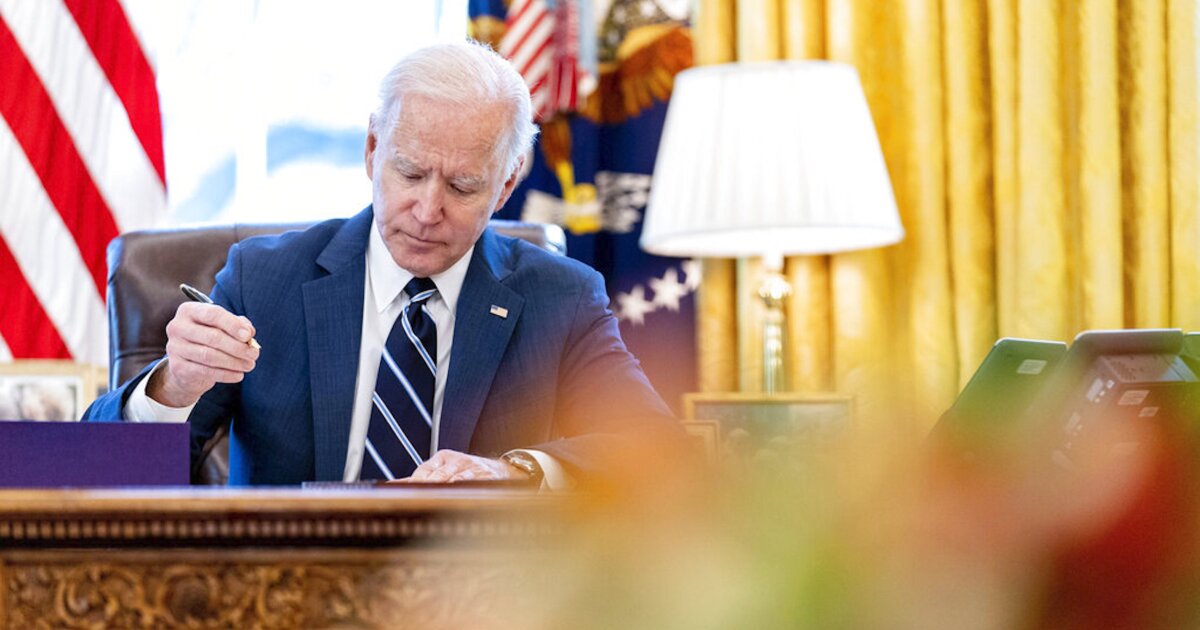

President Joe Biden on Monday rejected a congressional measure to cancel a Labor Department rule in what has become the first veto of his presidency.
Biden’s veto blocks a resolution to cancel the rule, which allows retirement plan managers to weigh environmental and social issues when making investments.
The rule — part of a broader push to promote environmental, social, and governance priorities, known as ESG — allows, though not requires, fiduciaries to weigh ESG factors when making investment decisions for retirement accounts.
I just vetoed my first bill.
This bill would risk your retirement savings by making it illegal to consider risk factors MAGA House Republicans don’t like.
Your plan manager should be able to protect your hard-earned savings — whether Rep. Marjorie Taylor Greene likes it or not. pic.twitter.com/PxuoJBdEee
— President Biden (@POTUS) March 20, 2023
The Senate voted 50-46 to rescind the rule, with backing from centrist Sens. Joe Manchin (D-WV) and Jon Tester (D-MT). The House voted 216-204 to pass the rollback, with Jared Golden (D-ME) as the sole Democratic defector in the lower chamber.
MANCHIN AND TESTER VOTE WITH GOP ON ESG MEASURE, SET TO FORCE FIRST BIDEN VETO
Anti-ESG sentiment has been growing among Republicans, although particularly among those in energy-producing states, who fear that the ESG push could end up “blacklisting” fossil fuel companies. Both West Virginia and Montana, represented by Manchin and Tester, respectively, rely disproportionately on coal.
Several GOP officials at the state level have used their power to combat ESG as well.
Prior to the developments in Congress that ended with Biden’s first veto, attorneys general from more than two dozen states filed a lawsuit against the Biden administration in January over the Labor Department’s ESG rule. The lawsuit, filed in Texas federal court, sought a preliminary injunction to stop it from going into effect.
CLICK HERE TO READ MORE FROM THE WASHINGTON EXAMINER
West Virginia hit out at ESG last year when it deemed five financial institutions ineligible for state banking contracts on the grounds that they boycott fossil fuel companies.
Last month, Oklahoma Treasurer Todd Russ announced he was planning to put financial institutions that “boycott” energy companies on a blacklist that will bar those firms access to billions of dollars from government entities.




